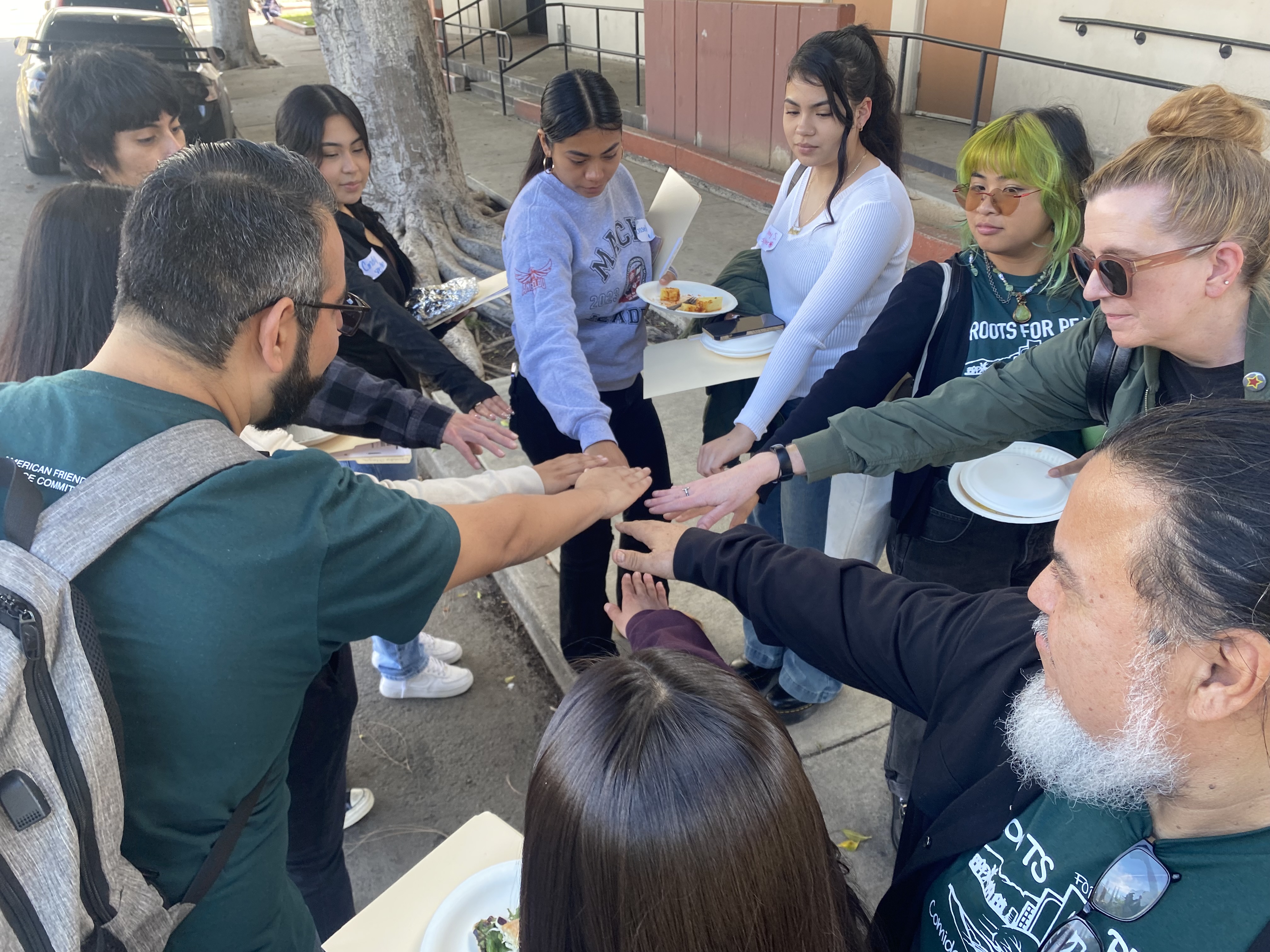
Adrian Alvarez
Q: Please tell us about yourself.
I was delivered by a midwife in a house that also served as a clandestine cantina in the small town of Escuinapa in the now infamous state of Sinaloa. My mother took my older sister with her to “el Norte” when I was four months old and left me with her childless aunt, the owner of the house/cantina, to take care of me until my mother established herself enough to send for me.
Twelve years later her relatives passed away and I was put on a northbound bus to meet my mother, a new father, and siblings I never knew. I was instructed to not get nervous and look happy when we crossed the border in a station wagon at the Tijuana entry.
My family lived in Oceanside, CA in a tract house in a neighborhood of Mexican immigrants and poor working families who worked in the farm fields across the 78 freeway. I went to sixth grade at the local elementary with all the kids in my barrio. There were no Latino teachers. Ms. Osaka, who was great and kind, was the only non-Anglo teacher.
Still undocumented, I was one of about 20 Mexicans and a few Latinos at my practically all-white high school. Mr. Valle, a nice Hispanic counselor, recruited me into his Raza Unida club. That was my first experience with the world of organizing. But it was a young progressive white counselor, Mr. Livingston, who convinced me to apply for college even though nobody in my family had a sound notion of what that was.
I was accepted at UCLA, became editor of La Gente Newspaper, and joined the MEChA organizations. There my consciousness grew exponentially, and I was introduced to serious political, social, environmental, and educational organizing.
Q: What drew you to AFSC?
I’ve been an organizer ever since I came to LA and South Central. I’ve worked with the 27th Street in South Central. That’s close to the garden that Crystal Gonzalez of AFSC has been directing. We’ve run into each other, and I’ve attended AFSC events. I even did a photography job for the garden. In the last six years, through working with a campaign to make ethnic studies mandatory in schools, I met Adal (Adalberto Rios) of AFSC.
Adal told me of the opening at AFSC. I’d been working as a parent representative at a nearby high school in South Central. I liked the opportunity to work in a space that’s more coherent with its vision. In school districts, they become so restricted by politics and bureaucracies. It becomes very difficult to do any kind of empowerment with parents or students. You’re always swimming against the current.
Q: What will you be doing as a Fellow with AFSC?
What got me interested is helping youth to become organizers. We’ve set up a couple projects against the presence of police in high schools and to get fareless public transportation.
If you were to ask what defines me -- am I a teacher, artist, filmmaker? The term that best describes me is organizer. I think that we on the Left don’t pay enough attention to generating skilled organizers. There’s not a school where you become an organizer. There aren’t even good books.
I think our first session with the youth went well. These youth will be the structural base for campaigns and movements in LA.
Q: What challenges do you envision in this work?
There’s no clear understanding as to what an organizer is. In many ways we’re breaking new ground. How serious do you want to get with this, how far can you get in a span of a few months? It’s like 101 classes in college, where you lay the foundations and then go to intermediate and advanced.
I think there’s a general tendency, speaking as a teacher, to treat high school youth like they’re still kids -- in the sense of what they’re capable of intellectually, morally, physically.
I’m trying to raise it so that when you become an organizer, you understand there’s some seriousness to this. You’ll be challenging the power relations of the police department, for example, or a school district. We’re often dealing with corruption and with power-hungry people.
When you really confront power, they don’t just “not like it.” They retaliate. It’s not like we’re going to do a workshop in a school and we’re relatively safe. We’re in the street. And even with just electoral politics, people who vote for certain candidates can get aggressive with their views.
Q: If you woke up tomorrow and the problems of state and police violence were solved the way you want them to be solved, how would you know? What would that world look like?
I wouldn’t see people sleeping in the streets. I wouldn’t see people looking for food in trash cans. We’d look at people being able to eat healthily, where families could eat healthy food and not just junk food, because that’s all they could afford.
You’d see more green in the cities, more trees, more parks and nature. You’d see people having more time to fix their own houses. I remember when I was a kid, my dad would tune up our car, do the oil change. We would fix the lawn mower.
There’s no more time for anything because everyone works double or extra time. You’d see more peacefulness and restfulness. Less anxiety because people now have the time to dedicate to whatever their true interests are, other than eating and paying rent.
The rent is unbelievably unacceptable, what we have now. Families are working just to pay the rent. We never get to see people doing something they truly enjoy, where they’re not coerced by economic pressures.

Adrian Alvarez, bottom right, joins other AFSC staff and youth at the February 2024 kickoff of the LA Roots for Peace Youth Organizing Program.